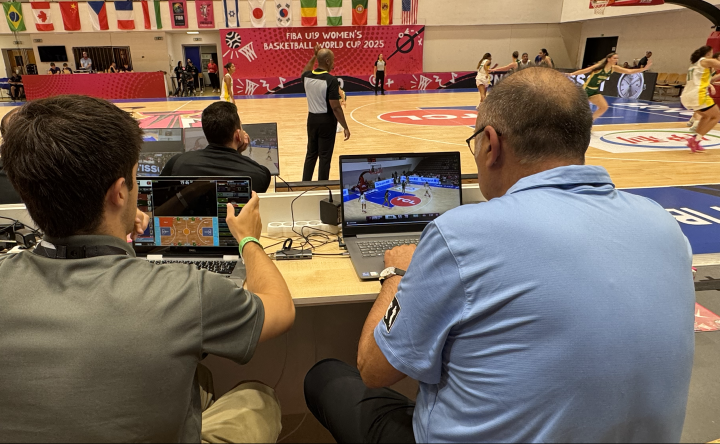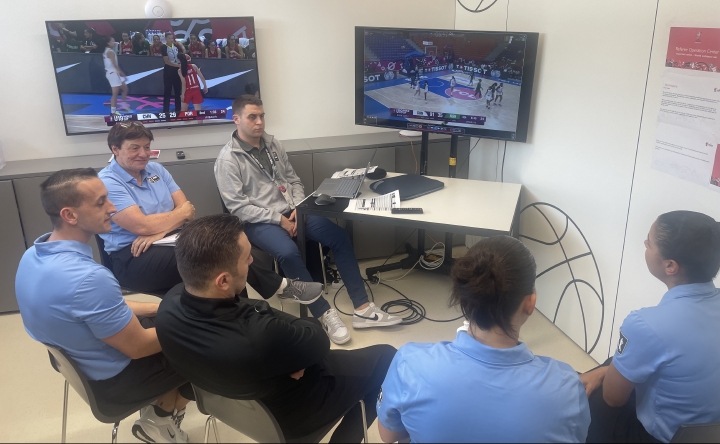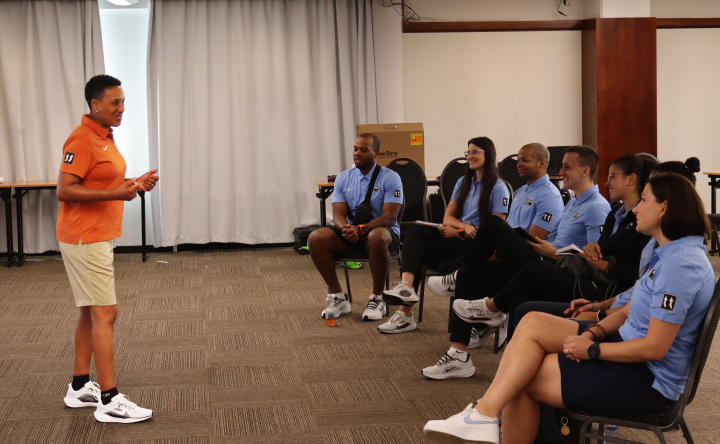The U19 Women’s World Championship tipped off Saturday, July 12th, in Brno, Czechia. Behind the scenes, an elite team of FIBA Referee Instructors is ensuring the highest standard of officiating. We sat down with three of the level 2+ instructors - Miodrag Licina from Serbia, Chantal Julien from France, and Nadine Crowley from Canada - to understand the philosophies guiding their crucial role.

BRNO (Czechia) – The U19 Women’s World Championship tipped off Saturday, July 12th, in Brno, Czechia. Behind the scenes, an elite team of FIBA Referee Instructors is ensuring the highest standard of officiating. We sat down with three of the level 2+ instructors - Miodrag Licina from Serbia, Chantal Julien from France, and Nadine Crowley from Canada - to understand the philosophies guiding their crucial role.
The Challenges of a High-Stakes Tournament
For the instructors, a major tournament presents a multi-sided challenge. The primary goal, as Miodrag Licina states, is "to ensure we have quality officiating." This involves balancing practical difficulties like long days and jet lag with the core mission of human development. Chantal Julien emphasises the need "to support all the refs... and to identify their points of improvement to help them."
This support must be tailored to the individual. A key challenge, according to Crowley, is "providing feedback specific to where they are at instead of giving them a lot of information that is beyond their level of experience." Beyond the current games, instructors are also tasked with shaping the future of officiating by identifying and reporting on potential top-tier referees for FIBA.
The Art of the Post-Game Debrief

Post-game analysis is a cornerstone of the instructors' work, prioritising dialogue over lecture. "I always begin by asking the referees for their own opinion," explains Licina. Crowley concurs, stressing the importance of "allowing the referee to explain the situation instead of us jumping in to explain."
These debriefs must be brief and focused. Both Julien and Crowley aim for short sessions, using a maximum of five key video clips to discuss the game’s main points. The feedback itself must be constructive and clear. Crowley uses a philosophy of "Radical Candor," explaining, "It is always important to be direct and honest in a respectful manner." The ultimate goal, says Licina, is getting everyone "on the 'same page' and see the game in the same, or almost the same, way."
A Street of Continuous Learning
While their title is "Instructor," all three are determined that learning is a two-way street. "Absolutely, it is a great opportunity for us to learn," says Licina. Julien puts it in short: "We are always learning by sharing with the others." Crowley adds that she always leaves a tournament with new knowledge, "whether it's about the game; new technology... the management of people or about myself and my limits and capabilities."

Wisdom for the Next Generation
When asked for final thoughts, the instructors shared philosophies that underscore their role. "I believe we should keep things simple and focused on the basics; the philosophy of 'less is more' is very effective," Licina advises.
Crowley wants people to understand that the role is a "year-round process" that requires specific skills like a strong work ethic, empathy, and "the humility to acknowledge when you are wrong." The dynamic with new referees is also evolving. "They are very demanding and ready to learn fast," says Licina, which puts positive pressure on the instructors "to evolve together with them."
For Chantal Julien, the experience is about connection. She finds it "a big pleasure to share human moments with instructors and the refs" and "our passion of basketball on and off the court." Her closing thought wraps the mentality of these dedicated instructors: "Associate Work and Fun.”
FIBA
